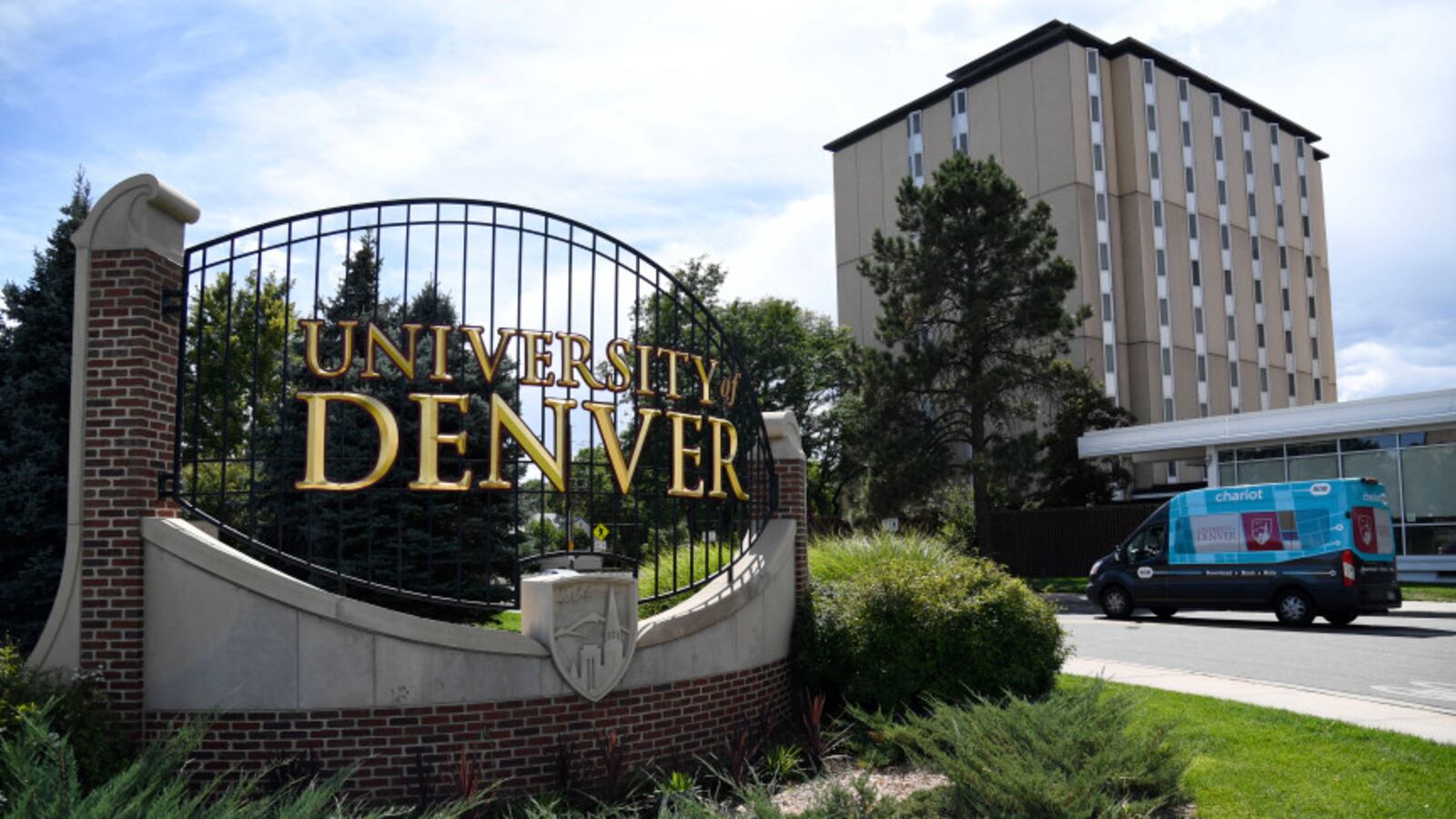Taking up a call made by college students around the country, students at the University of Denver are asking for a tuition reduction that reflects what they’ve lost since the campus closed last month to slow the spread of the coronavirus.
The closure set off a cascade of issues for students, from the loss of internet access and campus jobs to increased stress and emotional upheaval. Low-income students and those with disabilities have been most affected.
Knowing DU students face uncertain futures and feeling as if changes due to the shutdowns are severely diminishing their support network and academic experience, 11 students filed a petition to ask the school to adjust tuition.
The Change.org petition is meant to promote changes that will help put students at ease about their future and to reimburse them for a limited online educational experience for which they are paying full price. As of Friday evening, the week-old petition had garnered over 1,300 signatures.
“There are ripple effects: Like can I concentrate during this global pandemic when I’m taking online classes?” said Emma Stadele, a DU graduate student involved in the petition effort. “And I ask, is that the best way for me to learn? I know for me, I had to use a wireless hotspot because my Wi-Fi went down the other day and that then created another financial struggle.”
The university in March issued refunds to students for room and board and for student activity fees. But tuition, which averages $50,000 a year for undergrads, remains unchanged.
“I know our school is working on trying to find and get us access to certain emergency funds and things like that — this is not to say that the university’s not doing anything — but we just felt like we need to continue to advocate,” Stadele said.
The petition is one of many requests from college students nationwide calling for universities to refund charges after a stark switch in college campus life, including at schools such as Yale and Cornell universities.
Even as students struggle with costs during their diminished university experience, national reports show colleges are bracing for budget cuts and are reluctant to return money as they continue to pay expenses such as salaries and building upkeep.
University of Denver graduate student Hiba Ali said the impact of the virus on the university is especially taxing on students with disabilities who don’t thrive in an online environment. She said the changes also place strain on low-income students who can’t consistently access resources.
Ali said although she acknowledges DU is trying to also adjust during the unprecedented event and has made changes, the petition shows not every student has felt heard. She said many students have felt disconnected from school administrators, and that the petition is meant to bridge a gap in communication.
“I think it just speaks to the larger issue of education in the U.S. where students have to start a petition like this to just get attention to a problem,” she said.
Indeed, the Denver university has made some adjustments.
A spokeswoman for the campus did not address the tuition adjustment, but provided a list of resources that the school has compiled for students, such as how to approach online learning, how to communicate with professors if a student feels they are struggling with the remote learning environment, and a list of answers to frequently asked questions.
The school also refunded students for lost services such as dorm expenses and mental health and counseling fees. All graduate and undergraduate students also can take classes with a pass or fail grade.
Professors are also trying to be helpful to ensure students are getting the best experience given the circumstance, the two graduate students said.
“I have seen professors constantly asking for feedback, which is always great, but obviously everybody’s limited by the technology and their circumstances,” Ali said.
Nonetheless, Stadele said she’s felt like the expensive tuition she pays doesn’t match with the level of service she expects. Online learning isn’t a good environment for her, she said.
“I don’t feel like I’m getting the same education as what I’ve been getting in person — financially speaking,” she said. “In terms of access to facilities and resources that we would have gotten if we were in person on campus, it affects my learning engagement in my opinion.”


